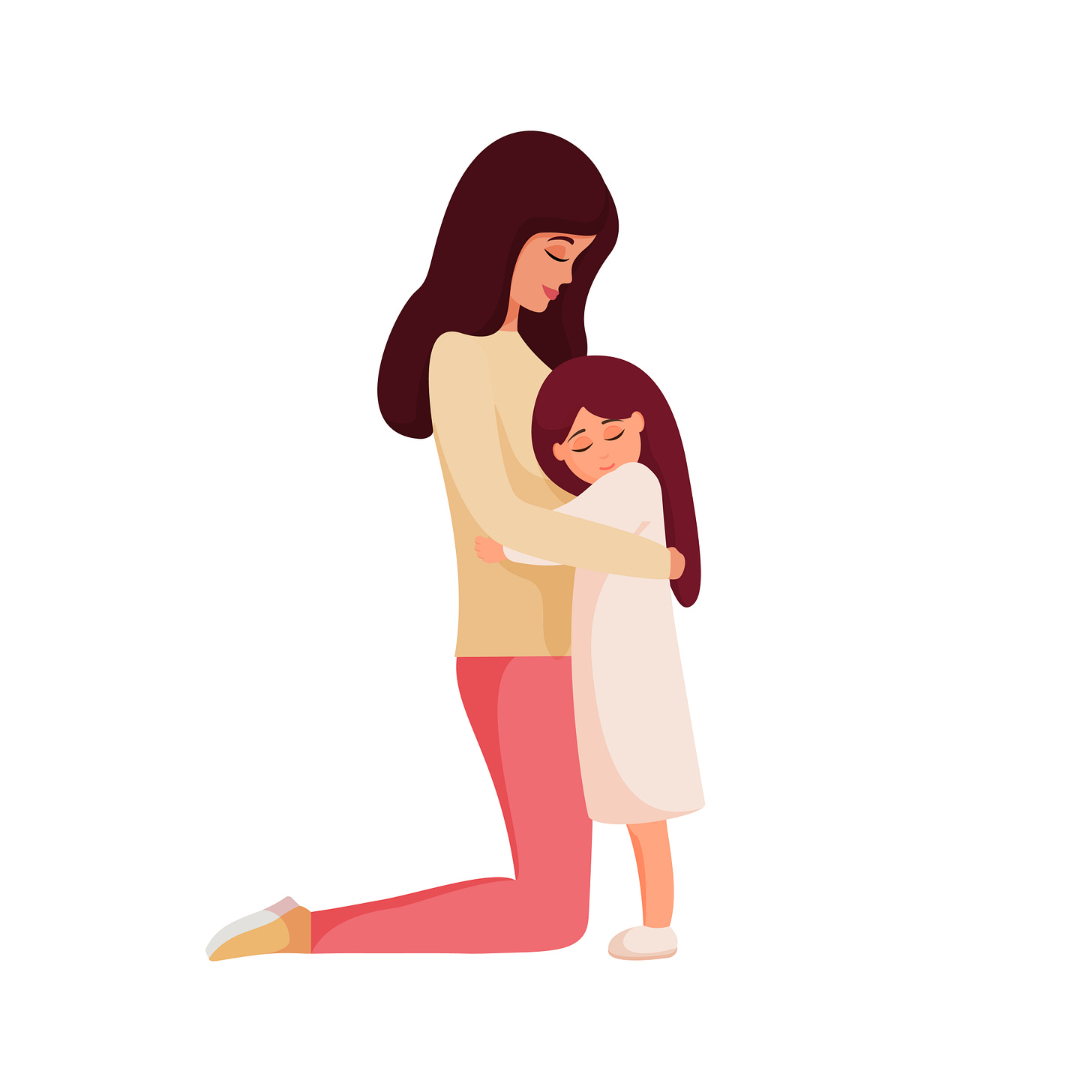The Resonant Parenting Project has almost 1,400 subscribers around the world. I’ll be offering special bonuses to paid supporters, and your support helps makes this work sustainable. Thank you!
And to register your interest in my conscious parenting courses, click here:
Resonant Parenting Project #14
On Instagram, you can find a script to meet every parenting challenge.
You’ll be told precisely what to say if:
You want to stop your child hitting their sibling
Your child is having a meltdown leaving the playground
You want your child to eat their vegetables
Your child wants the other parent to give them their bath
And so on.
I was recently reading some of the comments underneath such posts, and was struck by the sheer range of responses, including:
Gratitude when scripts worked
Frustration when they didn’t
Questions about what to say or do next
Long debates over the best approaches
Some of the discussion was incredibly complicated, with parents attempting to make sense of how to apply scripts in different hypothetical scenarios, and other experts weighing in with their own questions, views and opposing commentary.
If some of these scripts work for you, then that’s great. (For example, I’ve started using the “You wish…” formulation suggested by Haim Ginott, which I wrote about last month in Resonant Parenting Project#9: Seven Tips from the Sixties Psychologist who Invented the Phrase 'Helicopter Parenting').
But I’m concerned that the growing online emphasis on scripts is causing more problems than it solves.
The discussion threads are heavy with analysis and comparison. Many of the responses feel like they’re written from a place of doubt, self-judgment, anxiety or fear.
The confusion is hardly surprising.
On the one hand, parents are told that there’s no-one-sized-fits-all approach, and that the most important thing is to trust your intuition.
On the other hand, influencers have built up huge followings by offering precisely worded scripts for every occasion.
It would be easy for busy mums and dads to conclude that learning these scripts, and then using them as often as possible, will make them a better parent.
And the implication is that better parenting will turn your child into a more successful, likeable and empathic person.
If only it were so simple.
Why Scripts Are So Appealing
Scripts are popular for a reason.
We all have those moments where we feel at a complete loss.
It’s all very well being told to “trust your intuition,” but when our child is very over-stimulated, and nothing we say or do seems to be working, it’s easy to internalise feelings of failure, frustration and shame.
Scripts seem like an easy antidote to our overwhelm.
It’s comforting to think that an expert has devised tried and trusted phrases which — if we memorise them carefully enough — may actually work with our child.
This approach comes at a cost.
The very concept of parenting scripts implies that there’s some gold standard we need to learn — leaving a niggling feeling that we’ve maybe been getting it all wrong.
Scripts create another domain for perfectionism, performing and comparison to take root.
And scripts offer the comforting narrative that if we just try a little harder, we can get our parenting “right.”
Let’s do ourselves a favour, and let this harmful illusion go.
Connection Is Key
Much as we might feel the temptation to constantly compare ourselves unfavourably to some idealised image of the perfect parent, the reality is that there’s no way of ever “getting it right.”
There is no end goal that we achieve or don’t.
Deep down, we all know that parenting isn’t about the words we say.
Parenting is always about the quality of the relationship we build with our child. (ResonantParentingProject#2)
And there’s no set of scripts or phrases that can accomplish this.
Parenting isn’t like a work project that we must deliver in a certain way.
There isn’t — and never could be — a standardised, prescriptive formula for connecting with our children, based on a set of techniques, tools, or prepared notes.
Relationships are by their nature beautiful, messy, chaotic, emotional and unpredictable. And being in relationship with another human being is an innate, natural, primal thing — most of which takes place beyond words.
Instead of seeing our relationships as something we can pass or fail at, we can start to recognise them as the places where we learn about who we truly are at our core, and grow and evolve.
It all becomes a lot simpler when we remember to strip parenting and life back to what it’s really about: Deep connection with one another.
And that has nothing to do with what we find on Instagram.
Children See Through Scripts
I worked for years as a clinical psychologist in NHS Child and Adolescent Mental Health Services. Motivated, well-intentioned parents would often come to me saying: “I’ve read all the books, and say all the things the books recommend, but they’re not working with my child.”
I learned early on that children don’t respond to scripts.
They respond to our level of connection and attunement (ResonantParentingProject#3).
In fact, using scripts often backfires, since our children perceive that we’re using a technique on them, feel understandably angry, and become even more defiant.
This is the truth:
We cannot parent from our minds.
The more we go into our heads, the more reason and logic we use, the less connection our kids will feel.
It’s that simple.
Children can sense when we’re not being authentic — and that includes any time we try to control them using pre-planned phrases.
What children do respond to is the information we’re communicating that is not conveyed through words.
They respond to how they feel around us.
They feel the quality of respect, care and safety we transmit through our tone of voice, our facial expressions, and our body language.
The felt-sense of connection that our children experience when they’re with us has nothing to do with the logical mind.
When we are present, our energy communicates to our child that: “I’m with you, I’m here supporting you, you’re safe with me” (even if they might be being really challenging in that moment).
Embodying this presence can be challenging.
If we’re carrying a lot of trauma, we may need to take extra care to resource ourselves, since challenging behaviour by our children can be a big trigger.
But scripts won’t heal our trauma.
And neither will they connect us with our kids.
True connection comes from being present enough to pick up on their emotions, non-verbal cues, and their needs.
Words can actually interfere in this process, particularly if they belong to somebody else.
Let Your Natural Intelligence Flow
If you find scripts are a helpful starting point, then by all means use what works.
But remember that anything pre-prepared or prescriptive won’t work for long.
The real work for parents isn’t about getting the words right, but learning how to practice tuning in to ourselves, and our child, in each moment.
It’s about learning to slow down, and find ways to connect with more stillness and presence, because when we practice this enough, a natural intelligence begins to flow through us.
Thomas Hübl says that a tree doesn’t need to be told how to grow: The intelligence is always there when you can get rid of whatever is blocking it.
So much of parenting is about noticing how our own minds get in our way.
In those moments when we think we don’t know what to do, we need to take a pause, and become curious about what’s going on for us.
We can practice resisting the impulse to look outside of ourselves for some magic words that will take away our sense of confusion and powerlessness.
Instead we can experiment with becoming present to our confusion — perhaps even befriend it.
When we make some more space, and allow ourselves to be exactly as we are, instead of resisting what’s happening, we open up a channel for something new.
As we slow down in this way, something remarkable starts to happen.
The natural intelligence that was always in us, and in our child, starts to flow.
You won’t need to read a book, or scroll through your feed.
You’ll know what to say, and how to say it.
And you’ll know when to stay silent, and connect with your child in non-verbal ways.
And if anyone asks you how you know, you’ll shrug.
Because you don’t know how you know.
You just know.
See you soon,
I write the Resonant Parenting Project in between my work as a conscious parenting coach and looking after my six-year-old daughter Matilda. Any support from readers through liking, sharing, subscribing or buying me a coffee helps make this work sustainable. Thank you!






All of this, YES! Connection is key. This is the essence of The Jai Institute for Parenting philosophy, which I’ll be coaching parents through in my soon-to-be small business. I wish I could scream it from the rooftops for every parent to hear, thank you for making this accessible for so many!